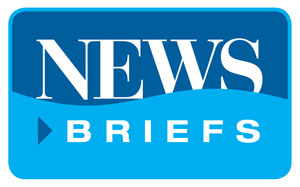Historic flooding in the Midwest is threatening the safety of thousands of private wells, according to the National Ground Water Association (NGWA).
The NGWA, drawing on federal and state weather and emergency information, estimates that more than 300 counties in the Midwest have wells potentially impacted by late winter flooding. While the exact number of wells possibly affected by contaminated floodwater cannot be readily counted, Census Bureau data show over 1 million wells in these counties.
The Association says the number of wells potentially impacted could be substantial because a large portion of the Midwest affected relies on groundwater for rural and small municipal water supply.
“Although the ground is frozen in March in most of this vast, productive agricultural region, wells can still be vulnerable,” says Chuck Job, NGWA regulatory affairs manager who compiled the data. “Even slight flooding around a well can potentially carry contaminated water to the wellhead, and if the wellhead is cracked or faulty in any way, the well and water system could be compromised.”
California Community Could Lose Water Provider
In the aftermath of the Carr Fire in Shasta County, California, recent reporting by the Record Searchlight says the community of Keswick could lose its independent water provider.
The small town was one of the hardest-hit areas during the fire — the seventh-most destructive in the state’s history — and a service area that once included more than 200 customers is down to 24.
Now, to stay in business, the water provider could merge with Shasta County Community Services District, a utility that experienced major customer losses in the Carr Fire.
Faced with the prospect of higher water bills, Keswick resident Trista Chaparro told the Record Searchlight that the issue was frustrating. “It’s almost like they put a wall up, built this huge mountain for us to climb over, and then we get half way, and they knock us down.”
EPA Files Suit Against New York City
The U.S. Environmental Protection Agency (EPA) and the Department of Justice recently announced that the United States filed suit under the federal Safe Drinking Water Act against the city of New York and the New York City Department of Environmental Protection for a longstanding failure to cover the Hillview Reservoir located in Yonkers, New York.
A consent decree requiring the city to make improvements and cover the reservoir at an estimated cost of $2.975 billion and to pay a $1 million civil penalty was also lodged with the court. The State of New York will be a co-plaintiff and is a party to the consent decree.
“New York City failed to comply with Safe Drinking Water Act requirements that keep drinking water safe from harmful bacteria and viruses, even when it was under an order to do so,” says EPA Administrator Andrew Wheeler. “EPA will ensure the City complies with the decree and takes the necessary steps to prevent its drinking water from harming the health of its residents.”
EPA Announces $6 Billion in 2019 WIFIA Loans
Wheeler of the EPA also recently announced the availability of funding to provide an estimated $6 billion in Water Infrastructure Finance and Innovation Act (WIFIA) loans in 2019.
“Through WIFIA, we are addressing several of President Trump’s top priorities simultaneously: modernizing our nation’s aging infrastructure, improving public health protections, and creating jobs,” he says. “This new round of WIFIA funding provides up to $6 billion in credit assistance which, combined with other sources, could support $12 billion in water infrastructure projects and create more than 180,000 jobs. For this round, we are prioritizing construction-ready projects in three areas: water reuse and recycling, reducing exposure to lead and addressing emerging contaminants, and updating aging infrastructure.”
WIFIA loans are available to public and private borrowers for a wide range of drinking water, wastewater, drought mitigation and alternative water supply projects.






